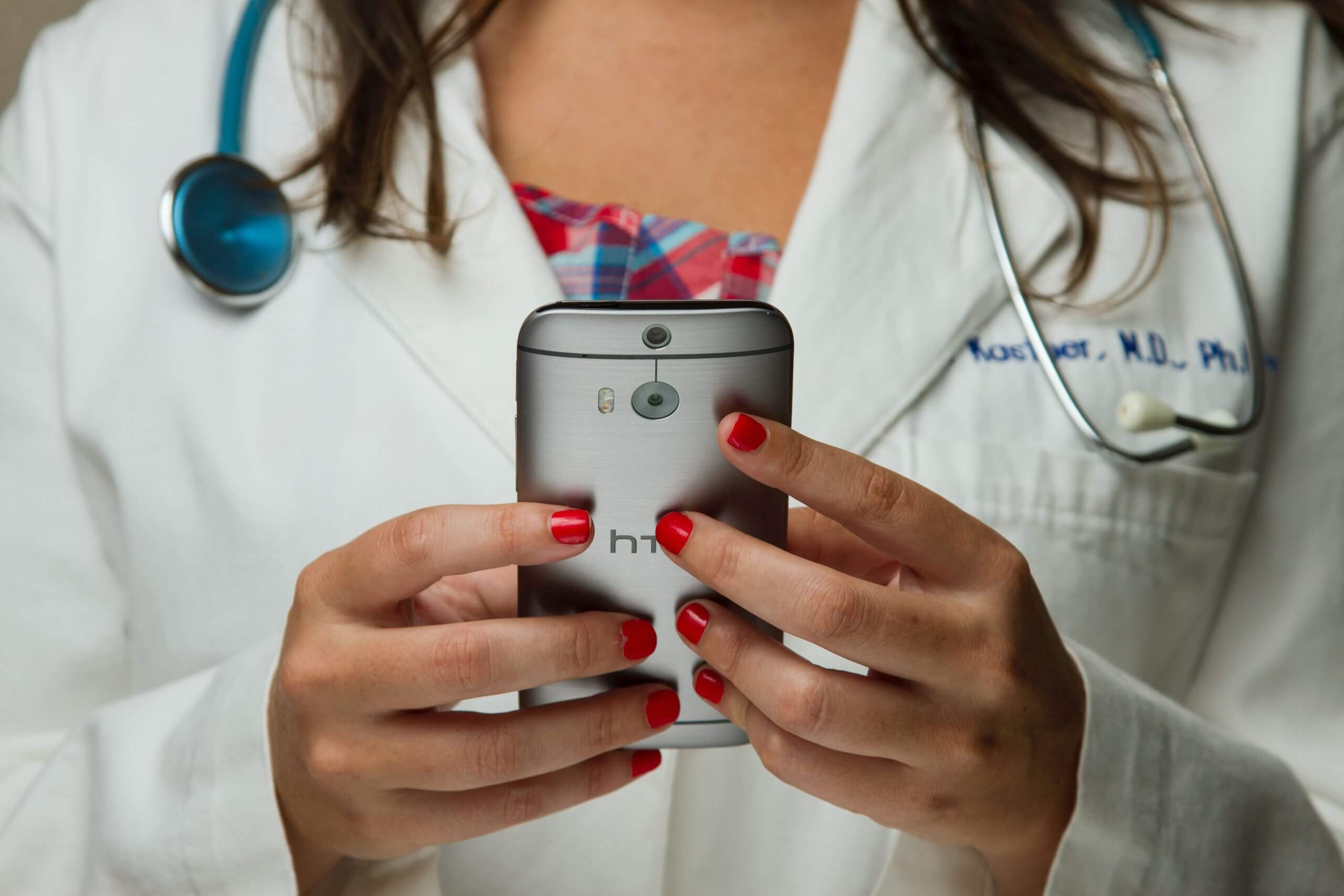
Telehealth offers virtual healthcare through the use of digital devices, like telephones and computers. It is a safe, effective way for patients to meet with their medical providers and is often more accessible and convenient. Many services are available and effective via telehealth, including diagnosis and treatment of chronic disease, as well as behavioral health therapy.
Telehealth has recently expanded to include treatment of opioid use disorder (OUD). This is crucial, as it’s not always easy to find a provider trained to prescribe buprenorphine/naloxone (Suboxone). Telehealth benefits include the opportunity for patients to track their symptoms and how they’re feeling throughout each day, with that information then instantly sent to their medical providers, allowing clinicians to provide the highest level of support to patients in-the-moment.
And further, this type of ongoing tracking and surveying throughout each day allows providers more insight into what might trigger a patient’s cravings, thereby allowing for a more specialized treatment plan. Telehealth communication also provides the opportunity to attend online support groups, which adds an extra layer of patient accountability and community support.
Patient and healthcare provider accountability is extremely important with telehealth communications. Let’s first discuss Bicycle Health’s accountability to our patients.
Bicycle Health’s Accountability and Responsibilities
Bicycle Health providers, staff, and leadership are committed to you, our patients. That means our providers work collaboratively with patients to develop personalized treatment plans, which are optimized for each individual patient. Providers meet with patients via videoconferencing visits at least once per month and more frequently as needed.
Most patients are electronically prescribed buprenorphine/naloxone (Suboxone) during their first provider visit, and this prescription is refilled during monthly video visits with one’s Bicycle Health provider. In addition to Suboxone, our providers prescribe medications to help relieve opioid withdrawal symptoms throughout the first few days (known as the induction stage), which include clonidine, hydroxyzine (Atarax), tizanidine (Zanaflex), ondansetron (Zofran), loperamide (Imodium), and dicycloverine (Bentyl).
Patients meet with their providers multiple times in the first few days of treatment (induction stage) as they stabilize on Suboxone, then meet on a monthly basis thereafter. These regular videoconferencing visits provide the opportunity to build mutual trust and a lasting patient-provider relationship. As patients work to overcome their struggles with opioid misuse, providers also assist patients with setting personal and professional goals, as well as develop plans to work towards these goals.
And further, research shows that treatment for opioid use disorder is most successful in conjunction with mental health supports. Here at Bicycle Health, we offer online support groups, which serve as safe, confidential spaces to meet with others who are also in recovery. Additionally, patients work with dedicated behavioral health coordinators, and our medical providers are trained to prescribe treatment for common mental health conditions, like depression and anxiety.
Next, Bicycle Health offers clinical and operational support staff who provide prompt answers to questions via the online patient portal, which may include clinical questions about symptoms, medications, or behavioral health, or operational questions, like scheduling appointments, using technology, or troubleshooting payment problems. Our patients consistently report that promptness in support staff responses is one of the best parts of being a Bicycle Health patient!
Lastly, privacy and confidentiality are very important to your medical care at Bicycle Health, and patients and providers alike are responsible for telehealth privacy. Healthcare organizations must ensure their telehealth systems employ encrypted, password-protected videoconferencing, and this is something Bicycle Health takes seriously to best protect our patients’ privacy. Patients are also responsible for engaging in security best practices, like only using home WiFi (and not in public areas) and ensuring the security of their passwords.
At Bicycle Health, we protect the privacy of our patients’ health information in accordance with state and federal laws, including compliance with the Health Insurance Portability and Accountability Act (HIPAA) and Disclosure of Substance Use Disorder Patient Records (Part 2).
Before the first videoconferencing visit with a medical provider, patients at Bicycle Health will be educated on security best practices in order to ensure the highest level of privacy and security possible. You can read more about Bicycle Health’s Telehealth Informed Consent here and Notice of Privacy Practices here.
Patient Accountability in Healthcare
Again, our Bicycle Health providers, staff, and leadership are fully committed to you, our patients. In order for our providers to assist patients in their recovery, there are a few important steps for patients to keep in mind. First, it’s important that Bicycle Health patients are ready to address their opioid misuse. Everyone falls along varying stages of readiness, and our Bicycle Health providers are best able to help patients who are in the preparation, action, and maintenance stages of change. Our providers also excel with assisting patients through relapses and contemplation (or re-contemplation) of recovery.
When you become a Bicycle Health patient, it’s important that you share your full medical and social history with your medical provider. This will help to build a relationship of trust between the patient and provider, as well as equip your provider with the necessary information to best help you throughout your recovery from opioid misuse.
Further, as part of the Bicycle Health program, providers request scheduled and/or random urine drug screens on a regular basis. These urine drug screens are taken at home by patients, then photos are uploaded to the Bicycle Health patient portal for providers to review. Urine drug screens are a useful tool to help keep patients accountable for their goals during recovery. If unexpected results arise in the urine drug screen, it’s an opportunity for the provider to explore where the patient might need more support with their recovery. In this spirit, we don’t talk about “failing a drug test,” and we don’t use the urine drug test to punish patients or take them off their Suboxone. Bicycle Health’s goal is to maximize patients’ likelihood of recovery, and thus, urine drug screens are one way we help patients meet their treatment goals.
And lastly, patient-provider communication via monthly videoconferencing visits is key. If you’re not able to attend a scheduled telehealth visit, then you can easily reschedule this through the confidential patient portal. Our providers are flexible and happy to reschedule if needed, but telehealth communication is critical!
Together, we can address the opioid epidemic, and health accountability is a key component as we work towards this collaborative mission. To learn more about the availability of Bicycle Health’s buprenorphine/naloxone (Suboxone) treatment in your area, call us at (844) 943-2514, or schedule an appointment here. We’d love to walk with you as you re-shape your life’s path.

By Rebekah L. Rollston, MD, MPH
Rebekah L. Rollston, MD, MPH, is a board-certified Family Medicine Physician and Head of Research at Bicycle Health. She earned her Medical Degree from East Tennessee State University Quillen College of Medicine (in the Rural Primary Care Track) and her ... Read More
Download Our Free Program Guide
Learn about our program, its effectiveness and what to expect
Imagine what’s possible on the other side of opioid use disorder.
Our science-backed approach boasts 95% of patients reporting no withdrawal symptoms at 7 days. We can help you achieve easier days and a happier future.
